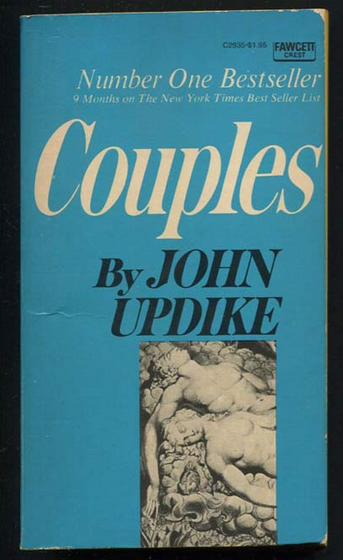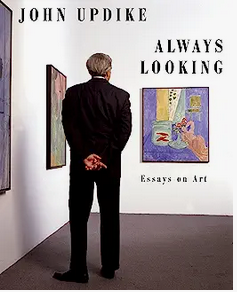Writer Clyde Haberman posted on social media yesterday that the death at age 92 of André Soltner, “the great chef who presided over Lutece in New York,” reminded him of a lunch he had there with John Updike.
“In 1996 I interviewed John Updike there, a restaurant he chose because it was near his publisher, Knopf. ‘There was sort of a symbiosis between the Knopf editorial board and Lutece,’ Updike said. Then he added, ‘I’ve never felt comfortable in here. I feel gourmet food is sort of wasted on me.'”
In “At Lunch With/John Updike; On Reading, Writing and Rabbit,” which appeared in The New York Times on March 6, 1996, Haberman wrote, “A sandwich and a glass of cranberry juice will do for lunch when [Updike] is at home, on 11 isolated acres in Beverly Farms, Mass., about 25 miles north of Boston. At this point, Mr. Updike said, he has to watch his waistline almost as much as his language.
“‘There’s no disguising the fact that a writer’s life is a sedentary one and prone to incessant snacking if you work at home,’ he said. ‘The little break of going down to get another oatmeal cookie is almost irresistible. So I try to make up for the cookies by not eating much at lunch.’
“Even when he was a boy in Shillington, Pa., outside the working-class town of Reading, literature and food converged. ‘I was a great peanut-butter lover from childhood on,’ he recalled. ‘The way I used to read was, we had an old sofa in the house, and I’m make a sandwich consisting of peanut butter and raisins. You’d eat one of those while you read John Dickson Carr or some other mystery writer, or James Thurber of Robert Benchley. In that way, many a happy afternoon went by.'”
Despite Updike’s talk of watching his caloric intake, Haberman wrote, “Let it be noted that he held up fine under the gustatory strain of Lutece, polishing off a serving of grouper after a cup of pumpkin soup and a puff pastry of sweetbreads and spinach. He did draw the line at dessert.”
In his 1-19-25 social media post, Haberman remarked, “That lunch with Updike . . . was one of those times when I enjoyed myself thoroughly and marveled that I actually got paid for such moments. I felt the same after interviewing Umberto Eco in Bologna a few years earlier.”

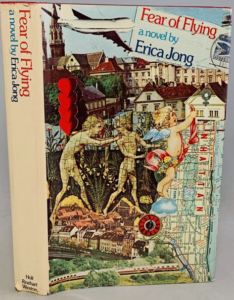 As part of their feminist classics series which looks at influential books, The Conversation featured an article on
As part of their feminist classics series which looks at influential books, The Conversation featured an article on 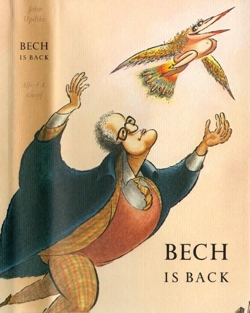
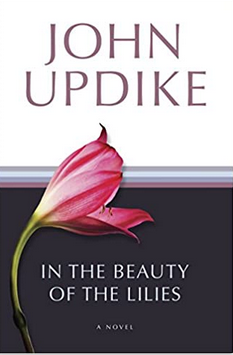 Mid-way through his essay, Sundahl remarked, “Of course there’s religion and then there’s religion and there are books and there are dirty books. . . which raises the question: Can one write about life, even life’s carnality and concupiscence, while maintaining Christian aspects?” He also, of course, attempted to answer his own question in a classical, meandering way, prompted by the last words (“the children”) of Updike’s novel, In the Beauty of the Lilies.
Mid-way through his essay, Sundahl remarked, “Of course there’s religion and then there’s religion and there are books and there are dirty books. . . which raises the question: Can one write about life, even life’s carnality and concupiscence, while maintaining Christian aspects?” He also, of course, attempted to answer his own question in a classical, meandering way, prompted by the last words (“the children”) of Updike’s novel, In the Beauty of the Lilies.
